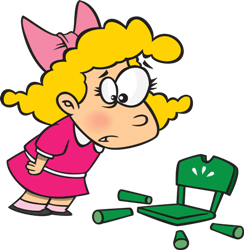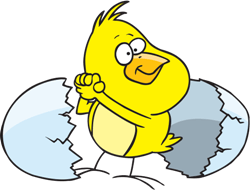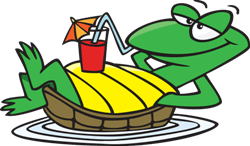Possessive Adjectives
Showing Ownership
Possessive adjectives are used to show ownership.
Click Here for Step-by-Step Rules, Stories and Exercises to Practice All English Tenses
Possessive adjectives are similar to possessive pronouns, but possessive adjectives always come before a noun.
Possessive adjectives work as an adjective by modifying the noun.
These are the possessive adjectives and the subjects they represent:
| Subject | Possessive Adjective |
| I | My |
| You (singular) | Your |
| He | His |
| She | her |
| It | Its |
| We | Our |
| You (plural) | Your |
| They | their |
Sentence structure
Possessive Adjective + NounWhen we talk about possessive adjectives, we say they show "ownership" for the subject.
"Ownership" in this form means that it belongs to that subject.
Examples:
- The tall woman is her
mom.
This sentence means that the tall woman belongs to her. She is the tall woman's daughter.
The possessive adjective her modifies the noun mom.
- Your
car
is small.
This sentence says that the small car belongs to you or you own the small car.
The possessive adjective your modifies the noun car.
1. My
The possessive adjective my shows ownership (possession) for the subject I.Examples:
- My
dog is brown.
(I own the brown dog.)
- That is my
horse.
(I own the horse.)
- Please hand me my
book.
(The book belongs to me or I own the book.)

2. Your (singular and plural)
The possessive adjective your shows ownership (possession) for the subject you.Examples:
- Is that your
cat?
(Does the cat belong to you? The cat is your possession.)
- Please turn in your
homework.
(Turn in the homework that belongs to you.)
- Don't be late for your
interview.
(The interview belongs to you.)

3. His
The possessive adjective his shows ownership (possession) for the subject he.Examples:
- He is traveling to see his
sister.
(She belongs to him/his family.)
- His
gift is on the table.
(He owns the gift.)
- He loves his
job as a chef.
(He has the job. The job belongs to him.)

4. Her
The possessive adjective her shows ownership (possession) for the subject she.Examples:
- Her
computer is broken.
(She is the owner of the computer. It is her possession.)
- She loves her
husband.
(Her husband belongs to her. She is his wife.)
- Do you know her
name?
(The name belongs to her.)

5. Its
The possessive adjective its shows ownership (possession) for the subject it.Examples:
- Its
nest is made of twigs.
(The nest belongs to it.)
- Its tire is flat.
(The tire is part of it [the bike, the car, the truck].)
- The dog buried its
bone in the yard.
(The bone belongs to it/the dog.)

It's = It + is
Examples:
- It's
raining today.
(It is raining today.)
- Does she know if it's
fixed now?
(Does she know if it is fixed now?)

6. Our
The possessive adjective our shows ownership (possession) for the subject we.Examples:
- Our
car is new.
(We own the new car.)
- Have you seen our
children?
(The children belong to us.)
- Our
chicken has laid an egg.
(We own the chicken.)

7. Their
The possessive adjective their shows ownership (possession) for the subject they.Examples:
- Their
kitchen is clean.
(They own the clean kitchen.)
- They are finishing their
chores.
(The chores belong to them.)
- Their
turtle is a good pet.
(They own the turtle.)

Possessive Pronouns
Do not confuse possessive adjectives with possessive pronouns.Possessive pronouns show ownership.
They usually come after the noun or object.
The possessive pronouns are:
- mine
- yours (singular and plural)
- his
- hers
- its
- ours
- theirs
Examples:
- The hat you found is mine.
(I own the hat.)
- That coat is yours.
(You own the coat.)
- The little boy is hers.
(The little boy belongs to her. He is her son.)
- The dog is theirs.
(They own the dog.)

|
These were the uses of Possessive Adjectives. Now that you know them, it is time to practice: Illustrated Worksheet on Possessives Forms.
Get Updates, Special Offers, and English Resources
Download your FREE GIFT (the first two chapters of
English Short Stories Book and Workbook)
as soon as you join!

By submitting your email, you consent to receiving updates and newsletters from us and to the sharing of your personal data with third parties for the purposes of sending you communications. We will not spam you. You can unsubscribe at any time. For more information, please see our privacy policy.






